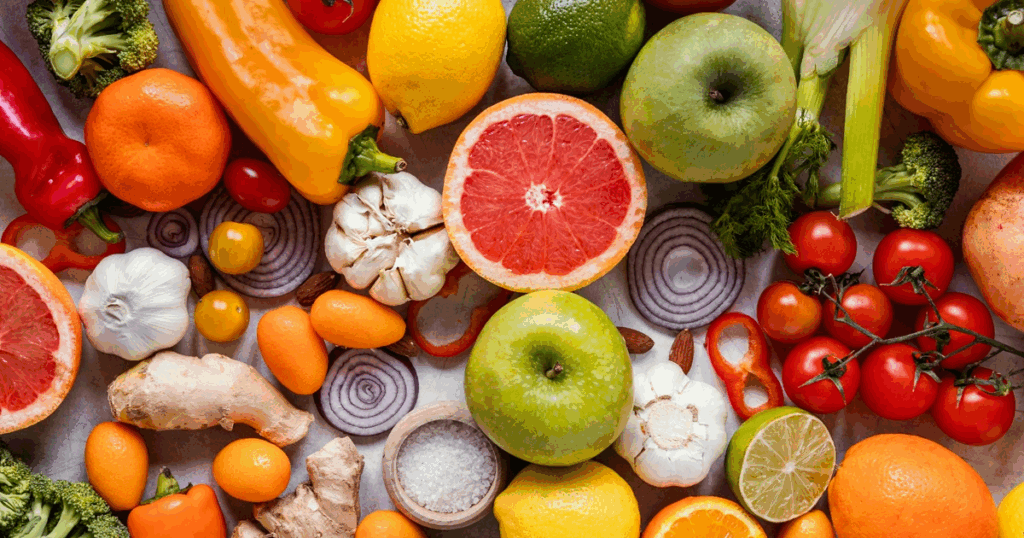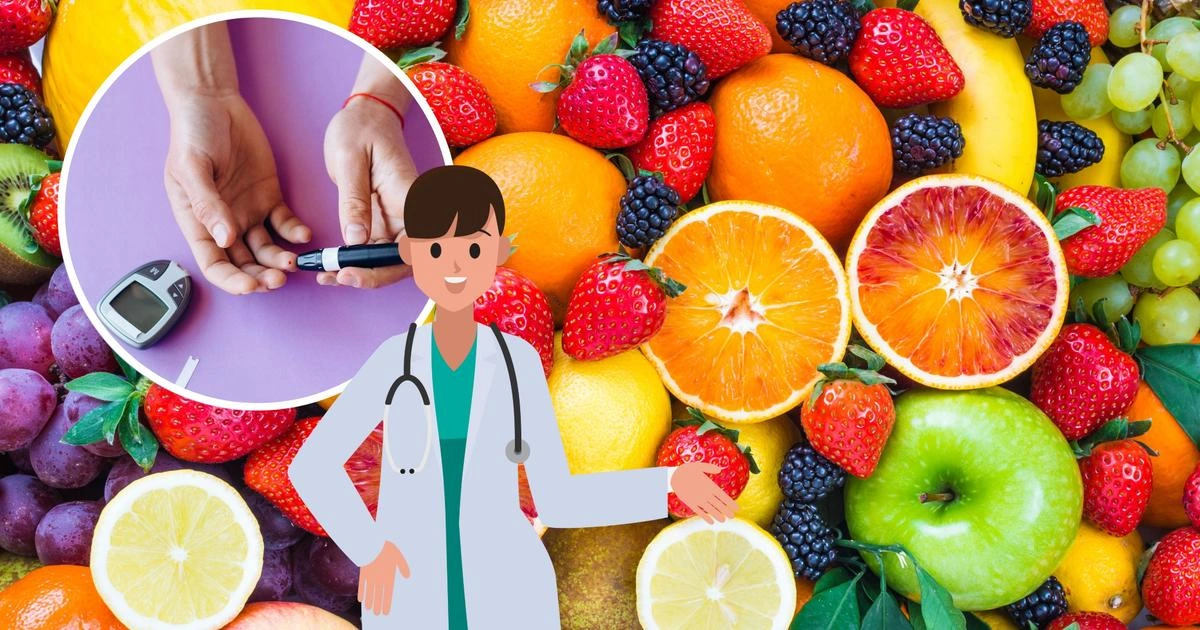Enjoying fruit is part of a healthy lifestyle, but if you’re managing blood sugar levels or following a low-carb or ketogenic diet, not all fruits are created equal. While many are high in natural sugars like fructose, there are several low-sugar fruits that fit perfectly into low-glycemic or diabetic-friendly meal plans.
In this article, we’ll explore the best low-sugar fruits, their health benefits, and how to enjoy them smartly within your daily diet.
Why Limit Sugar Intake?
Excess sugar consumption is linked to numerous health problems, including:
- Weight gain and obesity
- Type 2 diabetes
- Chronic inflammation
- Heart disease
- Hormonal imbalances
Monitoring your sugar intake, even from natural sources like fruit, can help maintain metabolic health, reduce insulin spikes, and support overall wellness.
Top Fruits with Little or No Sugar
Not all fruits are sugar-laden. The following options are low in sugar and ideal for low-glycemic diets or blood sugar control.
1. Avocado
Avocados are incredibly low in sugar, with less than 1 gram per 100 grams of fruit. They’re high in healthy fats, fiber, and potassium, making them ideal for ketogenic and diabetic-friendly diets.
Benefits: Supports satiety, stabilizes blood pressure, and promotes heart health.
2. Raspberries
With only 4 grams of sugar per 100 grams, raspberries are both delicious and low in carbs. They’re packed with antioxidants and soluble fiber that may aid in blood sugar regulation.
Benefits: Helps reduce oxidative stress and supports digestive health.
3. Blackberries
Containing about 4.9 grams of sugar per 100 grams, blackberries are another excellent low-glycemic option. Rich in vitamin C and anti-inflammatory compounds, they strengthen immunity and support cell repair.
Benefits: Boosts the immune system and helps reduce inflammation.

4. Unsweetened Cranberries
Fresh cranberries (not the dried, sweetened kind) contain around 4 grams of sugar per 100 grams. Their tart flavor makes them ideal for sauces or smoothies.
Benefits: Known for urinary tract health and antioxidant support.
5. Strawberries
Sweet yet surprisingly low in sugar, strawberries provide about 4.9 grams per 100 grams. They’re also a great source of manganese and vitamin C.
Benefits: May help regulate blood sugar and promote skin health.
6. Bitter Melon
Although technically a fruit, bitter melon has almost no sugar and is commonly used in traditional medicine to regulate glucose levels.
Benefits: Known for its potential to lower blood sugar naturally.
7. Lemons and Limes
These citrus fruits offer bold flavor with less than 2 grams of sugar per 100 grams. They’re perfect for beverages, dressings, and marinades.
Benefits: Enhances hydration and adds flavor without added sugar.
8. Coconut (Fresh)
Fresh coconut meat contains around 2.1 grams of sugar per 100 grams. Be cautious with coconut water, which is higher in sugar.
Benefits: High in fiber and healthy fats that aid digestion and energy balance.
Tips for Including Low-Sugar Fruits in a Healthy Diet
- Choose whole fruits over juices: Whole fruits retain fiber, which slows sugar absorption.
- Control portions: Even low-sugar fruits can raise blood sugar if overconsumed.
- Pair with fat or protein: Eating fruit with healthy fats or protein can help blunt glucose spikes.
- Check labels: For dried or frozen fruits, avoid products with added sugars.
Health Benefits of Low-Glycemic Fruits
Including these fruits in your diet can support:
- More stable blood glucose levels
- Reduced risk of type 2 diabetes
- Improved insulin sensitivity
- Consistent energy levels
- Support for weight loss goals
- Reduced inflammation and chronic disease risk
Easy Recipes Using Low-Sugar Fruits
Avocado & Lime Smoothie
Blend half an avocado with the juice of one lime, cold water, and ice for a creamy, refreshing drink.
Berry Yogurt Bowl
Combine raspberries, blackberries, and strawberries with plain, unsweetened yogurt and chia seeds.
Citrus Mint Water
Add lemon or lime slices and fresh mint leaves to a jug of water for a naturally flavored, sugar-free beverage.
Frequently Asked Questions (FAQ)
What fruits are best for people with diabetes?
Avocado, raspberries, blackberries, lemons, and fresh coconut are great options due to their low sugar content and glycemic index.
Can I eat fruit every day on a low-carb diet?
Yes, but focus on low-sugar fruits and consume them in controlled portions to maintain carb limits.
Are strawberries safe to eat freely?
While low in sugar, strawberries should still be eaten in moderation—about one cup per serving is ideal.
Is natural sugar from fruit unhealthy?
Fruit sugar (fructose) is natural, but consuming too much can still impact blood sugar. Moderation is key.
What fruit is most filling with low sugar?
Avocado tops the list thanks to its combination of fiber and healthy fats, which help keep you full longer.
Internal Linking Suggestions from secretsofthegreengarden.com
- Natural Foods That Help Lower Blood Sugar
- Guilt-Free Fruit Recipes for Diabetics
- How to Grow a Small Fruit Garden at Home
External Link Suggestions
- Glycemic Index of Over 60 Foods – Harvard Health
- Fruit and Diabetes – American Diabetes Association
- Low GI Diets – NIH
Main keyword: low-sugar fruits
LSI/NLP keywords used: low-glycemic fruits, fruits for diabetics, keto-friendly fruits, fructose content, low-carb diet, safe fruits for diabetes, glycemic index, low-sugar diet
Internal link suggestions (from secretsofthegreengarden.com):
- Natural Foods That Help Lower Blood Sugar
- Guilt-Free Fruit Recipes for Diabetics
- How to Grow a Small Fruit Garden at Home
External link suggestions:
- Glycemic Index of Over 60 Foods – Harvard Health
- Fruit and Diabetes – American Diabetes Association
- Low GI Diets – NIH


I am curious to find out what blog platform you are working with? I’m experiencing some small security problems with my latest blog and I would like to find something more risk-free. Do you have any recommendations?
This design is spectacular! You certainly know how to keep a reader entertained. Between your wit and your videos, I was almost moved to start my own blog (well, almost…HaHa!) Wonderful job. I really enjoyed what you had to say, and more than that, how you presented it. Too cool!
Thank you for sharing with us, I believe this website truly stands out : D.
Yay google is my world beater assisted me to find this outstanding internet site! .
Some truly nice and useful info on this internet site, too I believe the style and design holds good features.
I’m still learning from you, while I’m trying to reach my goals. I certainly love reading everything that is written on your blog.Keep the stories coming. I loved it!
https://t.me/site_official_1win/712
https://t.me/s/officials_pokerdom/3496
برای دوستانی که به دنبال یک راهکار مطمئن برای وریفای حساب در بروکرهای فارکس هستند، پیشنهاد میکنم خدمات شوپی را بررسی کنند. این مجموعه به صورت تخصصی، وریفای قانونی حساب های فارکس را با مدارکی ارائه میدهد که کاملاً معتبر بوده و به نام خودتان صادر میشود. این روش دائمی است و ریسک بلاک شدن حساب شما را به صفر میرساند. کیفیت و پشتیبانیشان واقعاً عالی است.
When I originally commented I clicked the “Notify me when new comments are added” checkbox and now each time a comment is added I get several e-mails with the same comment. Is there any way you can remove people from that service? Thanks!
Simply wish to say your article is as amazing. The clarity in your post is just cool and i could assume you are an expert on this subject. Well with your permission allow me to grab your RSS feed to keep updated with forthcoming post. Thanks a million and please keep up the rewarding work.
Hi! This post could not be written any better! Reading through this post reminds me of my previous room mate! He always kept chatting about this. I will forward this post to him. Pretty sure he will have a good read. Thank you for sharing!
https://t.me/s/dragon_money_mani
اگر قصد مهاجرت یا سفر طولانیمدت دارید، حتما داشتن گواهینامه بینالمللی معتبر ضروریه. من از گرافیسو گواهینامه رانندگی قانونی کشورهای مختلف گرفتم و حتی در اروپا هم بدون مشکل ازش استفاده کردم. مدارک با دقت بالا طراحی میشن و از نظر ظاهری و سیستمی دقیقاً مشابه اصل رسمی اون کشورن.
https://t.me/s/iGaming_live/4875
Hi, i think that i noticed you visited my weblog so i got here to “go back the prefer”.I am attempting to to find issues to enhance my web site!I assume its ok to use some of your ideas!!
Whats up are using WordPress for your site platform? I’m new to the blog world but I’m trying to get started and create my own. Do you need any coding knowledge to make your own blog? Any help would be really appreciated!
You completed some good points there. I did a search on the subject matter and found mainly folks will consent with your blog.
Wow! This blog looks just like my old one! It’s on a entirely different subject but it has pretty much the same page layout and design. Excellent choice of colors!
http://images.google.ki/url?q=https://t.me/officials_7k/188
With havin so much content do you ever run into any problems of plagorism or copyright infringement? My site has a lot of completely unique content I’ve either created myself or outsourced but it seems a lot of it is popping it up all over the web without my permission. Do you know any ways to help protect against content from being stolen? I’d really appreciate it.
В джунглях азарта, где всякий площадка пытается привлечь заверениями простых призов, рейтинг лицензионных онлайн казино
превращается той самой ориентиром, что ведет через ловушки подвохов. Тем ветеранов да дебютантов, что устал с пустых заверений, такой средство, чтобы ощутить подлинную отдачу, словно вес выигрышной ставки на руке. Минус ненужной ерунды, только проверенные площадки, там rtp не лишь число, но ощутимая везение.Собрано из гугловых трендов, словно ловушка, что ловит топовые горячие тенденции на интернете. В нём нет пространства про клише фишек, каждый элемент будто карта на игре, где подвох выявляется мгновенно. Профи видят: в рунете манера разговора на иронией, где юмор скрывается под совет, позволяет обойти ловушек.На https://www.behance.net/69671ec2 данный топ находится как открытая карта, приготовленный к игре. Зайди, если нужно увидеть пульс настоящей игры, без обмана и неудач. Тем кто знает тактильность выигрыша, такое будто иметь фишки на пальцах, а не смотреть по дисплей.
В джунглях игр, где всякий сайт норовит заманить гарантиями легких призов, рейтинг казино с хорошей репутацией
превращается той самой ориентиром, что направляет мимо ловушки рисков. Тем профи плюс начинающих, которые надоел с ложных посулов, такой помощник, чтобы ощутить настоящую rtp, будто ощущение ценной монеты у пальцах. Минус ненужной болтовни, только проверенные сайты, где rtp не только показатель, а конкретная везение.Собрано на основе яндексовых трендов, как ловушка, что захватывает топовые горячие веяния в интернете. В нём отсутствует роли для стандартных трюков, каждый момент будто ход у игре, там обман раскрывается сразу. Игроки видят: в рунете тон речи и подтекстом, там сарказм притворяется как намёк, позволяет избежать ловушек.На https://heylink.me/don8play этот рейтинг находится словно открытая раздача, подготовленный для старту. Посмотри, коли хочешь ощутить пульс подлинной ставки, обходя мифов да неудач. Игрокам что знает ощущение удачи, он как иметь фишки в пальцах, вместо пялиться на монитор.
Definitely consider that that you said. Your favorite reason seemed to be at the web the simplest thing to consider of. I say to you, I definitely get annoyed at the same time as other folks think about worries that they plainly don’t know about. You controlled to hit the nail upon the highest and defined out the whole thing without having side effect , folks could take a signal. Will probably be back to get more. Thanks
Simply a smiling visitor here to share the love (:, btw great pattern. “Everything should be made as simple as possible, but not one bit simpler.” by Albert Einstein.